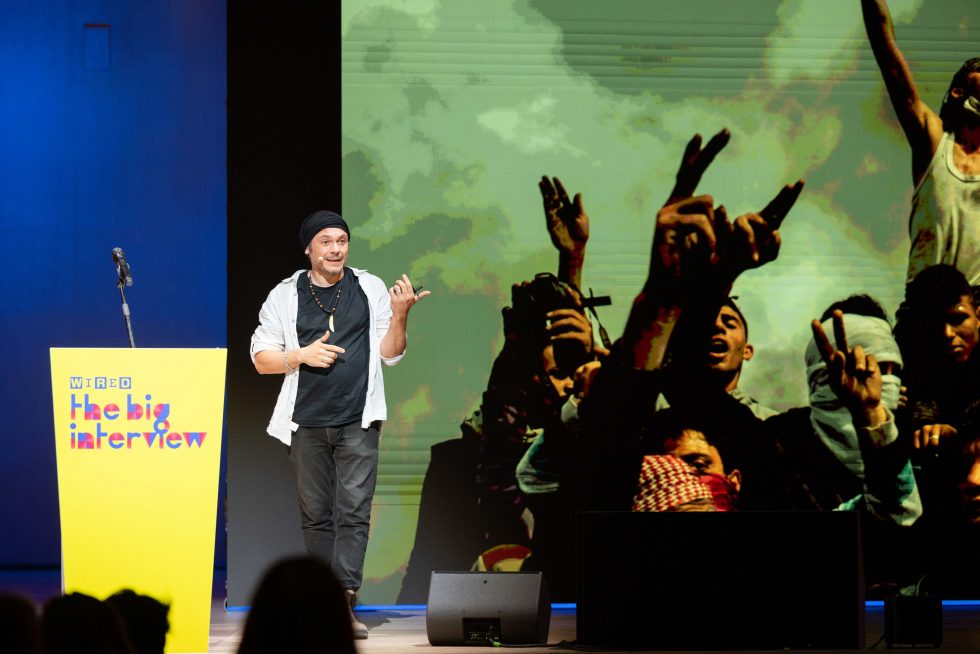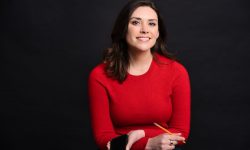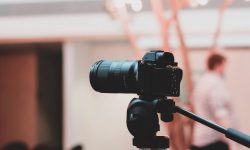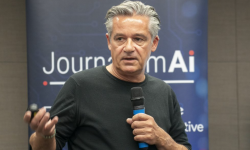
The original version of this article was published in Italian by the same author on 2 June 2025.
Over the past fifteen years, Fabio Bucciarelli’s visceral images of global conflict and its human cost have established him as one of the most significant international photojournalists of recent decades.
He has worked in major war zones, covering some of the world’s most critical crises and giving voice to those who experience war and tragedy firsthand.
With a degree in telecommunications engineering from Politecnico di Torino in his pocket and a camera in his hand – his lifelong passion – the lens has become his companion on journeys through wars, forced migrations, environmental disasters and social uprisings.
He reported from the Arab Spring, the Syrian conflict and the war in Ukraine. He documented the COVID-19 pandemic in Italy for the New York Times, and continued his reporting across the Occupied Palestinian Territories, the West Bank, Lebanon and Gaza.
View this post on Instagram
His commitment has earned him international recognition. Among his most prestigious awards are the Robert Capa Gold Medal, two World Press Photo awards, thirteen Pictures of the Year International honours, and many others.
His publications include The Dream, an emotional and intimate journey through the refugee crisis and the human condition — named one of the year’s best photo books by Time — and South Sudan: The Identity of the World’s Youngest Country.
Today, Fabio Bucciarelli works with leading international media outlets and, since 2011, has contributed regularly to Il Fatto Quotidiano.
In a few days, he will release Occupied Territories, his second book — a collection of work produced in the West Bank, Gaza and Lebanon between 2013 and 2024. The book will also be the focus of an exhibition in Sarajevo, which will later travel to Italy.
Bucciarelli spoke with Mediatrends during The Big Interview, an event by Wired Italia attended by Mediatrends, held on 26 June at Bocconi University in Milan.
The photographer highlighted key issues that signal a turning point between past and present — not only for the publishing world but also for how today’s online audience perceives journalists, information, professional integrity and ethics.

Fabio Bucciarelli at The Big Interview, an event organised by Wired Italia at Bocconi University on 26 June 2025. Photo: Franco Russo.
Funding for journalism keeps shrinking. What is the situation today for freelancers and investigative reporters?
The bond of trust between the press and the public has weakened — if not broken entirely. People no longer turn to newspapers for information, and much of the blame lies in the kind of news they choose to publish. Western media often back certain political figures, and as a result, readers have lost trust — even if they still want to understand what’s happening in the world. There’s now a significant gap that needs to be filled.
And that is exactly where social media and new digital platforms come in.
We’re living through a major transition: traditional intermediaries are no longer needed, and with social media, people access unfiltered content instantly. These tools can reconnect us with information — and help rebuild a sense of community in today’s fragmented world.
The times we are living in are not helping – they only seem to make information more fragmentated.
The rise of social media, and the way we use it, has trapped us in bubbles of individualism. We’ve stopped caring about one another. What we truly need is a return to that sense of community that has always been part of human history. Without it, no social struggle will have been worth it. 2024 was a devastating year for journalism: over 70% of my Palestinian colleagues were killed — yet hardly anyone talks about it. I believe it’s time to change course — to rediscover empathy, and the ability to truly see others.
How is the role of journalists changing with social media in the mix?
We’re facing a rapidly evolving landscape. Sometimes people assume that so-called “influencers” are journalists, and that everything they read or see online is news — but it’s not. We need to build a stronger culture around how we engage with digital content, making it clear that there are professionals — freelancers, whether in Gaza or elsewhere — who have the training and credibility to deliver real news. Not everyone with a pen is a poet, and not everyone with a camera is a photographer. At the same time, the speed at which information spreads must be kept in check — as we all know, there’s always the risk of falling into propaganda and fake news. Just look at some mainstream newspapers: they already use AI, but they don’t disclose it.
How is the public reacting?
From this point of view, some people feel deceived. That’s why we need a filter — but this time, it’s no longer up to newspapers. It’s down to public awareness.
View this post on Instagram
Is the constant exposure to raw, unfiltered images of war ultimately a positive or a negative thing?
When a photojournalist enters a conflict zone, they can’t avoid documenting the brutal side of humanity — that’s precisely the point. But what truly matters is how those brutalities are photographed. The goal isn’t to dwell on the morbid violence of war, but to capture an iconic image — one that transcends time and place, speaks to our conscience, and doesn’t need to show everything explicitly. In a way, rather than shouting, an image should whisper, inviting us to ask questions. Because even we, who witness war up close, don’t have all the answers.
You have covered many conflicts and difficult reports. Which place would you most want to document today?
Gaza, without a doubt. I first went there in 2013, but since October 7 it’s been impossible to enter. I managed to get in a few days after the attack on a Jordanian Air Force plane delivering humanitarian aid. Now, you need permission from the Israeli military to access the territory — and once you leave, they inspect every single piece of footage you’ve recorded. That’s how they control the narrative. But I want to return to Gaza as a free man.









